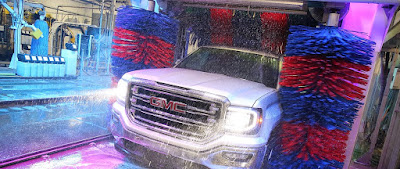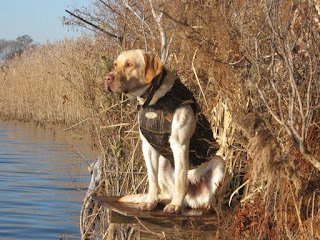
By Carol Cardona, Extension specialist, poultry virologist
A single duck can excrete billions of influenza virus particles per day. Influenza virus survives in cold, moist conditions and is preserved by freezing. These characteristics result in heavy contamination of pond and slough water, especially when the water is cold. Hunting, trapping, hiking and fishing activities bring people into contact with virus in mud and water that can then be moved to poultry flocks on things like contaminated boots, vehicles and dogs.
Clothing
Clothing, especially boots, can carry virus in mud or water into poultry barns where it can infect the flock. Anything that is worn in a wild bird environment must be removed and not brought into the poultry barn at all.
- Clothes and shoes worn for any hunting, fishing, trapping, training dogs, or hiking activities need to be different than the ones used for work related activities.
- Avoid cross contamination at home.
- When you return home from any hunting, fishing, trapping, training dogs, or hiking activities, enter your home through the door you don’t use when going to work (if possible). Consider the door and entry area contaminated and when you are clean and heading for the barns, leave by a different door.
- Leave your footwear in an area separate from your farm boots (back door, different closet, garage, etc.)
- Put clothes from outdoor activities into the washer immediately. Undress from hunting, trapping, etc. in the laundry room as to avoid dragging anything with you into the “clean” areas of your home. Make sure these clothes and shoes/booths do not come in contact with the clothes, shoes/boots you will wear to work.
- Clean and vacuum the laundry room to minimize the risk contaminating other parts of your home.
- Shower and put on clean clothes.
- After any hunting, fishing, trapping, training dogs, or hiking activities, the next morning, shower and put on clean clothes and shoes. Drive to work. Park your vehicle in the designated area.
Vehicles
Vehicles that are used for any hunting, fishing, trapping, training dogs, or hiking activities are contaminated both on the inside and the outside. They must never come onto a poultry farm until fully cleaned and disinfected.
- Outside of the vehicle: Vehicles that have been used any hunting, fishing, trapping, training dogs, or hiking activities must be washed off site. Running vehicles through a superwash before getting home will work. Make sure to get the undercarriage washed, which is usually only included with more expensive packages when using automated car wash.
- Inside the vehicle: When you get home after hiking or other outdoor activities, clean and disinfect the interior of your truck.
- Remove floor mats and shake off all organic material.
- Spray floor mats with a lot of Lysol or a 10% solution of chlorine bleach. You want rubber to be dripping or carpet to be thoroughly saturated.
- Spray and wipe down the steering wheel and stick shift with Lysol or the bleach solution. Place a paper floor mat on the floor on the driver’s side or both sides if the other seat was used by another hunter.
- Do not go back into the truck unless you are showered and wearing clean clothes.
- After any hunting, fishing, trapping, training dogs, or hiking activities, the next morning, shower and put on clean clothes and shoes. Drive to work. Park your vehicle in the designated area.
Hunting dogs
Hunting dogs are in waterfowl environments where there is lots of virus when they are working or being trained. Because of that, they should be considered to be contaminated at all times.
- Keep hunting dogs away from poultry barns at all times.
- The area where hunting dogs are kept should be considered contaminated and you should stay away from it when you are wearing farm clothes or going to the barns.
- Keep dogs (and cats) out of areas at home where you keep your boots and clothes that you use for work in the poultry barn.
Yourself
You can carry influenza virus on your body without being infected. For that reason, it’s important to shower thoroughly before returning to work after outdoor activities.
- Shower and wash your hair after any hunting, fishing, trapping, training dogs, or hiking activities.
- Keep your fingernails short and wash hands well before coming back to work.
- Blow your nose and discard the tissue during your clean up process.
- Wait 12 hours (overnight) before you come to work.
Suggested guidelines for people engaged in outdoor activities and others that come onto poultry farms:
- Wear clean clothes and shoes that have never been in contact with clothing and boots used for hiking or hunting when you come to the farm.
- Keep vehicles that have been used for hunting or driving in wildlife areas away from the farm until they have been cleaned and disinfected on the inside and on the outside.
- Keep hunting dogs and dogs that roam freely in wildlife areas away from poultry flocks. They should never enter poultry barns.
- Stay away from dogs on the way to the barns because they should be considered contaminated.
- After hiking or being outdoors, shower, clean your fingernails, blow your nose and wash your hair. Wait at least 12 hours before you return to work.









